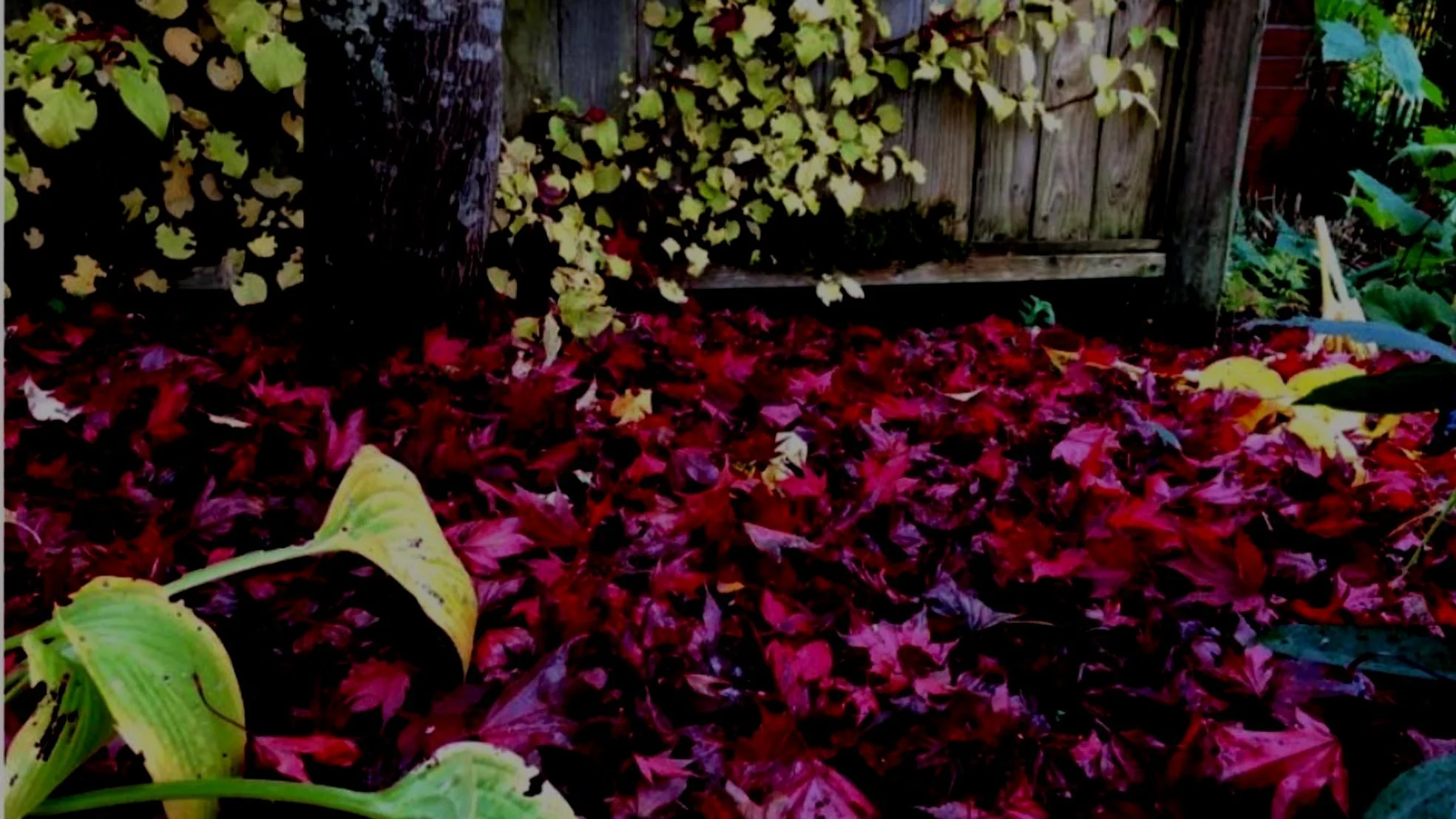Why is it that gardeners have such a love-hate relationship with leaves in the fall? We look forward to and love the fall colors, but we hate the chore of picking them up. In the East and Midwest, where there are large populations of deciduous trees and hence copious quantities of leaves, gardeners have for centuries partaken in the annual burning of them. While in northern California, where I lived prior to coming to the northwest 30+ years ago, we would rake them to the curb along with all our other yard waste and the city would come through and collect them. Here in the Northwest, where due to fewer deciduous trees in our yards, we mostly place them in our green bins for composting at a commercial facility, such as Cedar Grove. There are perfectly good reasons for both removing or leaving leaves in our gardens. Here are some of my thoughts on the subject…
Leaves are a huge resource for the garden. They are rich in nutrients and if allowed to remain on the soil, will return those nutrients to the ground from which they were removed. They can also act as a blanket of insulation from the cold winter, a hiding place for worms and bugs which in turn provide a food source to our feathered friends and finally, a barrier to winter weeds. Fallen leaves are a vital link in the cycle of nature that over time builds soils, prevents compaction from the driving rains, and helps to minimize erosion on sloped ground. Nobody in their right mind would think of removing leaves from the forest floor, yet we do it all the time in our gardens. Over the years I have found that leaf rakers fall into two classifications, “Rake Them Uppers” and “Let Them Liers”.
If you are of the “rake-em-up” camp (sometimes I refer to this group as “neat Nellies”), then you need to remember that by removing your leaves you are depriving your soil of this replenishing opportunity and therefore it is your responsibility to find some other way to replenish it yourself. You are going to have to buy in some compost and spread it on your beds, once you have finished raking all the leaves. Like I already said, this makes absolutely no economical or ecological sense (yes, a lot of things we do in the garden could easily fall into that category), and yet we compulsively continue to do it. I suppose for gardeners who have highly maintained gardens (think Butchart Gardens only on a smaller scale), this is probably the only reasonable option.
If on the other hand you are of the “let-em-lie” camp (this is my “messy Mollie” crowd), then you will at least need to “organize” your leaves so they are not smothering your lawn or evergreen shrubs and perennials. Your leaves can be several inches deep as long as they are not covering any foliage, and if you have no plans to intensively garden in these areas then you can actually just leave them there to break down all on their own.
In my old garden I used to herd most of my leaves into some of my older and established beds. The leaves would stay there all winter, and for the most part my spring bulbs would pop up through them. If you do decide to remove them in February, be careful not to damage newly emerging bulbs or tender shoots of perennials (like Hostas or Peonies). Removing the leaves at this time has the benefit of opening the soil up to the air (and hopefully some sunshine) and helps to wake up the beds.
I have other beds where I do like to remove all the leaves, because I want to plant bulbs and Pansies and the leaves get in the way. In these beds I will apply an organic fertilizer at the time of planting and if needed, some additional compost to cover the soil and act as a mulch for the winter. These amendments take the place of the removed leaves and help to keep my soils healthy.
In the end, I think whatever we do with our fall leaves really depends on our individual garden styles. Highly manicured gardens require us to remove fall leaves, whereas more relaxed and natural gardens allow us to incorporate them into the landscape. Just remember that leaves are a rich source of nutrients for our gardens. If we remove them from our gardens then we will need to replace them with additional fertilizers and compost - which is often made from the very leaves that get hauled off from our gardens). Maybe in a small way that sort of makes it all okay.



